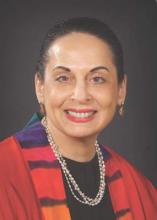When practice guidelines differ from each other, it is up to individual providers to make the choice that is best for their patients, and we once again find ourselves in this position – this time, regarding mammography recommendations.
Specifically, the American Cancer Society (ACS) is now recommending annual mammograms beginning at 45 years, with biennial screening available after 55 years. ACS also does not recommend clinical breast examinations.
Meanwhile, the American College of Obstetricians and Gynecologists (ACOG) stands by its previous recommendations for screening to begin at age 40 years and be conducted every 1-2 years and then annually after age 50. Moreover, ACOG continues to encourage clinical breast exams every year for women over age 19.
That these two respected organizations diverge in their recommendations may be confusing, but it reflects the fact that medical information is constantly evolving and that different groups may weigh evidence in different ways.
So, what is a gynecologist to do?
Increasingly, ob.gyns. are our patients’ primary well woman–care provider. It is incumbent on us to give the women we treat the screening and counseling that they need to live healthy lives and to make sure that part of the shared decision-making includes not just practice guidelines, but also our own clinical experiences.
In my practice, I have always included clinical breast exams in my patients’ visits. Without question, the moments that I have spent performing this relatively noninvasive service have paid dividends, as I have found enough evidence of abnormal tissue that I have recommended mammograms to women who would not have yet received them routinely. Those who ultimately received cancer diagnoses were able to receive treatment early, improving their survival.
Similarly, I have seen patients younger than 45 years – women with no apparent elevated risk – benefit from annual mammograms. We know that early diagnosis is key to beating breast cancer, and for these women, starting mammography screening at age 45 would have delayed their life-saving interventions.
I am sure that countless women are celebrating the new ACS guidelines, as they anticipate avoiding the discomfort associated with mammograms. But as I reflect on my patients’ experiences, I plan to continue providing clinical exams and recommending regular mammograms. In fact, I have worked with patient advocates through my hospital’s Breast Health Ambassador Program to mitigate women’s fears about mammograms and to encourage them to regular testing.
There is a one in eight chance that a woman will be diagnosed with breast cancer in her lifetime. We cannot let these women down by postponing their chance at early detection.
Dr. Rabin is professor of obstetrics and gynecology at Hofstra University in Hempstead, N.Y., and co-chief of the division of ambulatory care and women’s health prenatal care assistance program in the North Shore-LIJ Health System. She has been a practicing ob.gyn. and urogynecologist for more than 30 years. She reported having no relevant financial disclosures.


